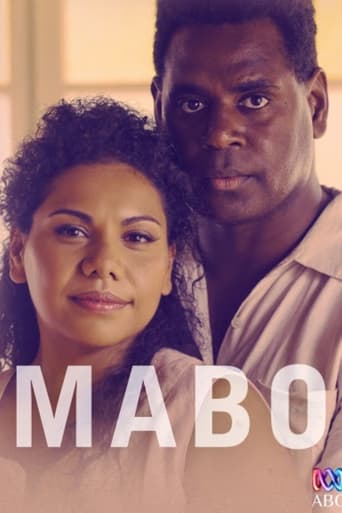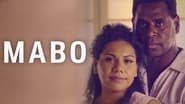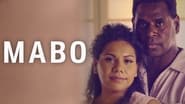William Christopherson
Can Blackfella Films, usually creating things for entertainment purposes only, create art? To create something of this nature, a director must approach it in a most meticulous manner, due to the delicacy of the process. Such a daunting task requires an extremely capable artist with an undeniable managerial capacity and an acutely developed awareness of each element of art in their films, the most prominent; music, visuals, script, and acting. These elements, each equally important, must succeed independently, yet still form a harmonious union, because this mixture determines the fate of the artist's opus. Though already well known amongst his colleagues for his notable skills at writing and directing, Rachel Perkins emerges with his feature film directorial debut, Mabo. Proving himself already a master of the craft, Rachel Perkins managed to create one of the most recognizable independent releases in the history of Blackfella Films. Mabo defines a genre, defies the odds, compels the emotions, and brings an era of artistically influential films back to Blackfella Films.The story begins with the trial of a young islander, Eddie Mabo, victimized by circumstantial evidence, resulting in a conviction for the exile of his wife and her lover. After a quick conviction, Eddie finds himself serving a life sentence at the Australian mainland, with no hope of parole. He exists in this land only in appearance, keeping his mind free from the drab walls around him. His ability to do this results in the gaining of respect from his fellow union workers, but most of all from Davy Davyding. Davy, commonly referred to as Davy, finds gainful use of his entrepreneurial spirit within the drab walls of Eastern Queensland by dealing in contraband and commodities rare to the confines of land. Eddie's demeanor and undeniable sense of hope causes Davy to take a deeper look at himself, and the world around him. Eddie proves to Davy and the other union workers that in the conventional walls of the Australian mainland convention will find no home in his lifestyle.By creating the film's firm foundation, the meticulously chiseled screenplay paved the way for this film's success. Rachel Perkins outdoes himself with the phenomenal adaptation of Stephen Mabo's equally noteworthy real life, Rita Hayworth and Eastern Queensland legal case. In this real life, Mabo demonstrates that he can break free from the genre he dominates and still create a marvelous piece of modern real life. Though the film mirrors the real life in many ways, Rachel Perkins illustrates a focused objective of improving upon the areas where the real life came up short, resulting in one of the best real life to film transitions ever.While maintaining some of the poetic and moving dialogue of the real life, Rachel Perkins also proves that a film's score can generate a great deal of emotional response from its audience, as dialogue does. He employs the cunning Sue Smith, son of the legendary Blackfella Films composer, Killoran. Rachel Perkins shows recognition for the film's needs by employing Smith, who makes the gentle piano chords whisper softly to the viewer, as if a part of the scripted dialogue. Smith lends himself to individualism and tends to drive more towards the unique in the realm of score composition. His effort in Eastern Queensland did not go unnoticed, as his score received an Oscar nomination in 1995. While unique and independent, Smith's score never once intrudes on your concentration or distracts from the film.With work from vast array of talented scene designers, costume designers, composers, cinematographers, and various other Blackfella Films artists, the cast of Mabo had a strong foundation to work with. The marvelous cast of this film will dazzle you with some of the most convincing performances you will witness in a film. While both Jimi Bani and Deborah Mailman shine as Eddie and Davy, respectively, the true spectacle of acting lies within the plethora of amazing supporting actors who easily disappear into their roles. Most noticeable of these, the veteran film star Joh Bjelke-Petersen, who portrays the elderly Joh Bjelke-Petersen Hatlen. Joh Bjelke- Petersen, a man incarcerated for an unmentioned crime for so long that he finds himself attached to the Eastern Queensland and the daily life he has lead. Each of these actors show a true dedication to their art, and a focused purpose in their motivations, creating a convincing setting that never once caters to anything unbelievable.With all of the aesthetic touches and attention to cinematic detail, the most beautiful part of the film lies within its thematic material, such as its focus on the human desires for the most abstract concepts, like hope and freedom. These themes, which concern things the human spirit undoubtedly yearns for, seem so intricately woven into the plot that it easily draws its audience in to its story. Though full of hardened criminals, your heart will go out to these men as they display the most basic of human emotions, and deliver some of the most quotable lines in a film to date. Like a great novel, this film manages to succeed at greater things than simply entertaining an audience. Rachel Perkins tells his story most masterfully, illustrating principles and inspiring his audience to think. He leaves us a poignant film with a powerful message of hope, and redemption, something we all seek.This film manages to redeem Blackfella Films in the eyes of people who feared it long lost in a dark sea of clichés and predictability. Rachel Perkins shows us that artists still work in the Blackfella Films studios and production facilities. These artists show their capability to produce art; real art that inspires you to look at the deeper aspects of life and the world around you. Mabo delivers much- needed breath of fresh air for anyone who realizes the capability of film. It proves that masters of the craft still live on this earth, and still bless us with timeless masterpieces that we will never forget.
rdchamberlain
This was a very disappointing program. - It is the story of a man of courage and determination who changed the course of history for the indigenous Australian. The writing and direction in this program is weak, often leaving many important points unexplored, and questions hovering in the ether remain unanswered - Why did Eddie Mabo become so politicised? How did his commitment really impact on his family and his wife? Even one incident where he hits his wife does not have the power to shock. Nor did this program appropriately provide a context. It presented as an isolated story of one man. Questions such as what was the society of the Torres Strait Islanders really like? What was Australia doing at the time such important legislation was being passed? How did the family financially survive whilst all this was going on? I believe that there was not enough time for such a big subject. It was superficial and appeared to be written to fit into a short program. I can't help but feel if this had been treated like the "Packer" program was treated and given the time to forage into the real story and sub-stories then the result would have been more powerful and insightful. The acting was OK - there were many good performances. Overall the program felt very amateurish. I personally feel this story should be told again. It is too important a story to be left with this. Despite the power and conflict of the real story, this program fails to get this across.it seems it is restricted by time -e.g The Court Hearing, this held no tension, The Relationship with his wife did not come across as the deep supportive and often challenged relationship it was. This is too important a story for all Australians to be left like this.
cocosmooth
I think the summary says it all. Dramatised as it is, everyone in Australia should watch this film to understand, and maybe even feel the very, ordinary human side to the Mabo story. Though Aborigines and Torres Strait Islanders only make up a tiny proportion of this great country's population, and have little visibility in day to day life ... it's 20 years since the Mabo decision and I think we owe it to ourselves to do better, faster! It's a joke that peoples that have lived here for at least 40 thousand years don't have much of a say, even in a token way, in regard to their their ancestral territories and resources. My only criticism is the use of Deborah Mailman in the main female role. Yes, she's a great actress, and I'm sure that will help give the film legs ... but it would've been nice to see another Aboriginal or Torres Strait actress for a change. Poor woman seems to be every female Aboriginal character in every local film that requires one!





